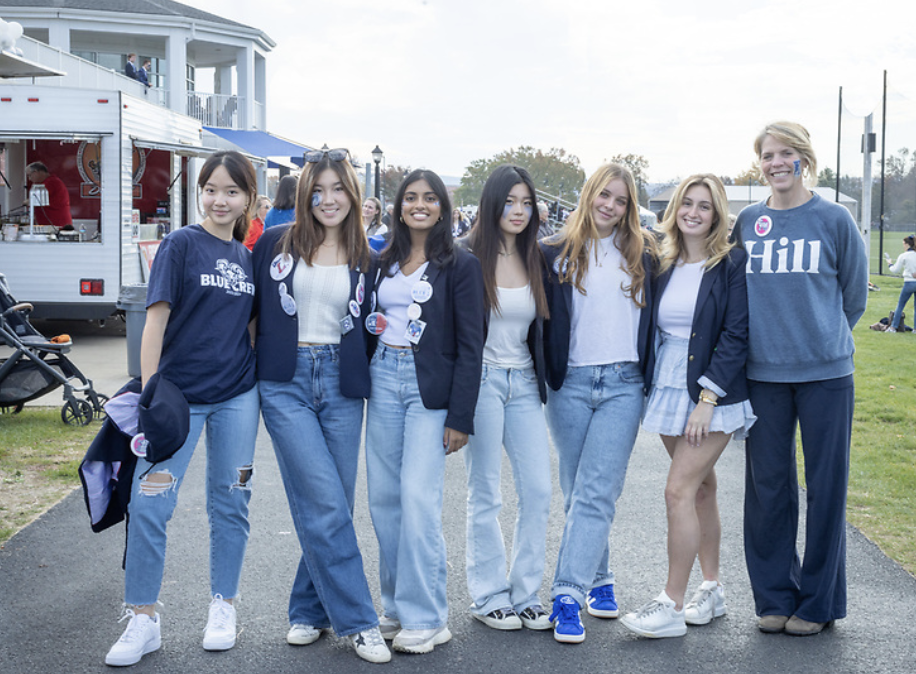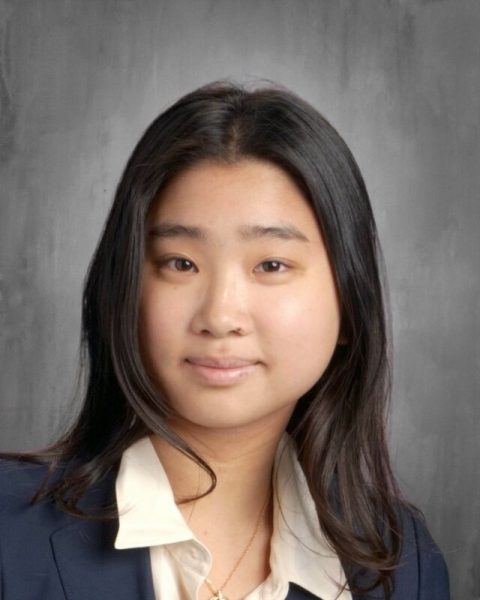As Hill continues its celebrations of 25 years of co-education, the Hill community acknowledges the work that still must be done as Hill strives for equity for all students.
Even though the transition to co-education provided a seismic shift to Hill’s culture and helped to foster a more inclusive community for female-identifying students at Hill, current female-identifying students still face obstacles. One of these continual setbacks is the struggles of women in the STEM environment.
“I think sometimes abilities can be doubted, at least in my place. In some of my STEM classes, I was one of three or four girls in my STEM classes at one point. So definitely there is still a divide in the higher-level mathematics classes, at least the science classes, and some of the other classes here,” Morgan McMahon ’24 remarked.
McMahon expands on her point of the struggles for women in the STEM environment. “I think the stereotype still prevails that typically women tend to go into more humanities-based fields, while men typically go into more STEM based fields,” McMahon observed.
Sophie Walsh ’24, the co-president of HASGOI, also noticed the same situation as in her STEM classes and agrees with McMahon. “I do wish that we had more women, especially in STEM classes, which I think we’re getting there and seeing more classrooms be mixed in terms of like, you know, not like this is the girl’s table, this is the guy’s table,” Walsh remarked.
In addition to the gender divide in the classroom, Walsh ‘24, commented, from her perspective as HASOGI president, on the difficulties faced by marginalized groups of students from the LGTBQ+ community at Hill and the efforts HASOGI is making to change the culture at Hill. Commenting on the work that HASOGI is doing, Walsh said, “I think a lot of what we’re trying to do is get younger students more involved, more educated and make it more visible on campus so that we can get rid of some of that negative culture.”
Despite the amazing work that HASOGI is doing, the community also has to acknowledge that the work that HASOGI does is built upon the foundation laid by the trail-blazing women that were a part of the first few years of co-education and their experiences at Hill which shifted the culture regarding inclusion, allowing Hill to be in a position to discuss further the topic of inclusion and equity among students.
The Reverend Anne Confer Martens ’02, who is a member of the first co-ed graduating, reflected upon the difference in the culture at Hill during her time as a student, illustrating the progress Hill has made on its journey regarding co-education. “There were many classes you were in where you were the only female student or one of several, and I think that was really hard,” the Rev. Confer Martens shared. “At times, the dynamics of spaces were really different. Doc Malone will always remind people that the Quad was an entirely male dominated space until Upper School East became a girls dorm,” Confer Martens continued.
Ellen Nelson, Senior Master Teacher of the Arts, who grew up on Hill’s campus as a faculty kid and has been a part of the faculty since before the school went co-ed, echoed the same sentiments about the “culture of the time” being “a male dominated society”. “Growing up on campus was a wonderful thing, but when I got a little older it became a little more difficult because I grew up when it was all guys,” Nelson said.
“I was valued as a community member, but it was mostly just sort of the culture rather than say that the school that would impede things,” Nelson explained.
Confer Martens also commented on the significant difference between the culture she experienced as a student at Hill to the current culture she observes and believes that Hill has taken large steps in the right direction in terms of the inclusion of women. “I think it is wonderful that our current head of school obviously is a testament to where we have come as a school and our willingness to see women at all levels of leadership of the school. Not merely in classrooms,” Confer Martens said.
This changes continuously occurring is evident as current female Hill students have a drastically different experience at Hill. “I think my personal experience as a woman at this school has been nothing but positive. I think a lot of girls on this campus don’t realize how much of a lucky time period we are in right now,” Ella Lee ‘24 said. “And I think if anything, I have seen and met so many influential faculty members who are really amplifying woman power. I guess some people right off the top of my head are like Dr. Miller, Ms. Keefer, Mrs. Neese, they just have so much positivity to bring and so much change,” Lee continued.
Despite the drastic changes from all-boys to co-education 25 years ago, the Hill Community acknowledges the work that still must be done. Confer Martens, expanded on this concept as she says, “Many folks understand that gender is not binary, we understand gender expansiveness and inclusivity, sexual orientation, and gender identity, and all those pieces that we continue to ask and wrestle with and wonder about.”
“Not just being a co-educational institution, but a place that welcomes students who don’t identify fully as one, as male or as female, or as some of both, or as neither, or as a third, or, you know, all of those, all of those types of pieces,” Confer Martens continued, “So I think that to me feels like the part of that ongoing conversation about the legacy of co-education is to say, what does it look like to be a place that welcomes and includes not just girls and women, but folks from across the spectrum of gender identity.”
However, despite the progress Hill has made towards being more inclusive and increasing equity among students, “We’ve got a long way to go, but we’re getting there,” Nelson concluded.


























